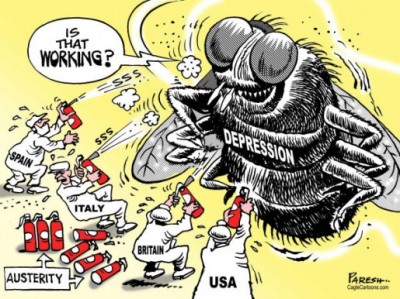These days opponents of austerity measures are winning. General unpopularity of savings is understandable. Unemployment in Europe has climbed to the highest record and economic growth is not sustainable. So, the nervousness connected with making cuts is growing not only among voters, but also among politicians. Most of them start to move into the austerity-opponents’ camp. The last one to do so was the head of the Slovak government, describing austerity measures as “completely counterproductive.”
If the consensus in the European Union and other international organizations goes in a similar way, it will be a Pyrrhic victory. Opponents of the austerity policy have forgotten that one of the main causes of our current problems is not saving in response to the crisis. In many countries it was irresponsible public spending decades before the crisis that resulted in the current problems. Austerity policy has been completely misunderstood and considered a major obstacle preventing us from getting into the “dreamed” world economic growth.
Moreover, we ignore the real problem that should reasonably have become the target of massive criticism, that is, a permanent increase in the cost of doing business due to adoption of laws that results from excessive ambition, on the one hand, and ignoring the economic consequences of adopted legislation, on the other.
One simple example would be the so-called “REACH” – chemicals legislation which was recently approved by the European Parliament. During approval procedures, it was subject to criticism because of the expected disproportionate costs, while its proponents described it as poignant. What is its relevance here?
According to research done by German companies, the cost of registration of chemical substances varies from several hundred thousand to several millions per company. The costs include the fees for the EU Agency, lawyers, external consultants, and internal staff. More than 60 percent of German companies have been affected by the increased taxes on the prices. As the European Commission estimates, the total cost for the European industry will not to exceed 2.3 billion euros. Nevertheless, just the first stages of its introduction will cost $2.1 billion, with two more to be done till 2018. The REACH legislation became the most expensive in the last few decades, which unnecessarily increases corporate taxes. Therefore, it should be put in the following way: we must reconsider unnecessarily expensive laws, not austerity policy.



